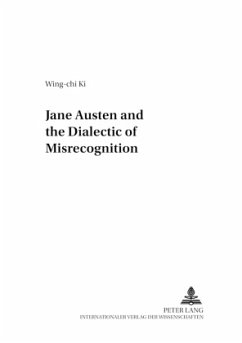
Failure: The Humble Narrative of Unsuccessfulness in Late Modernist Fiction
British, Irish and Postcolonial Novels and Stories
Herausgegeben: Ahrens, Rüdiger
Versandkostenfrei!
Versandfertig in 1-2 Wochen
67,80 €
inkl. MwSt.

PAYBACK Punkte
0 °P sammeln!
Failure as a pervasive occurrence in life has rarely been investigated by sociology, even though the collapse of plans, unattainability of goals and breakdown of vital relationships are ordinary experiences. The study of early-21st-century fiction reveals that imaginative literature at present explores the lacunae of failure, disillusionment and collapse as central narrative themes. About fifty years after Samuel Beckett, in whose works the failing of expression became a major concern, postmillennial narratives expose disruption or defeat as subject matter and literary trope. Unheroic failure ...
Failure as a pervasive occurrence in life has rarely been investigated by sociology, even though the collapse of plans, unattainability of goals and breakdown of vital relationships are ordinary experiences. The study of early-21st-century fiction reveals that imaginative literature at present explores the lacunae of failure, disillusionment and collapse as central narrative themes. About fifty years after Samuel Beckett, in whose works the failing of expression became a major concern, postmillennial narratives expose disruption or defeat as subject matter and literary trope. Unheroic failure as a motif makes its variegated appearance in diverse areas of human life such as love, religion, art, and social community. The narratives explore it as the individual's participation in common humanity.














